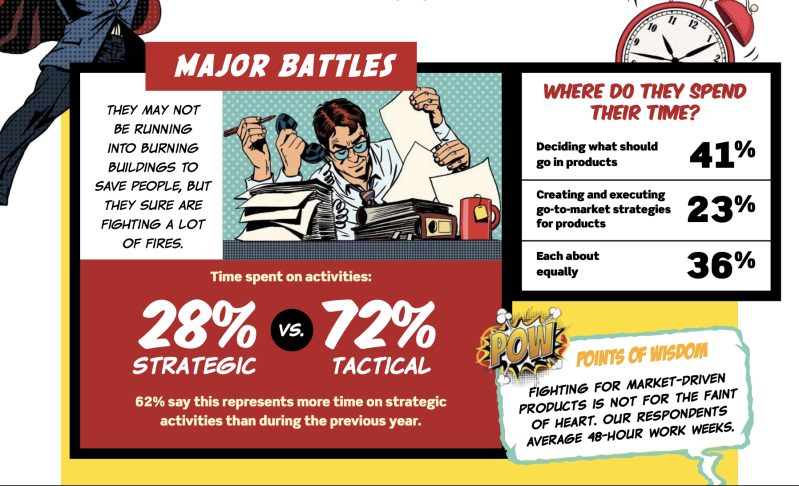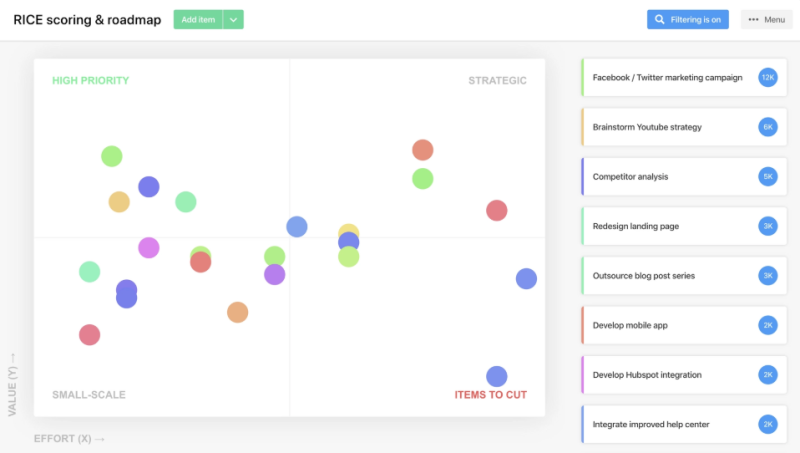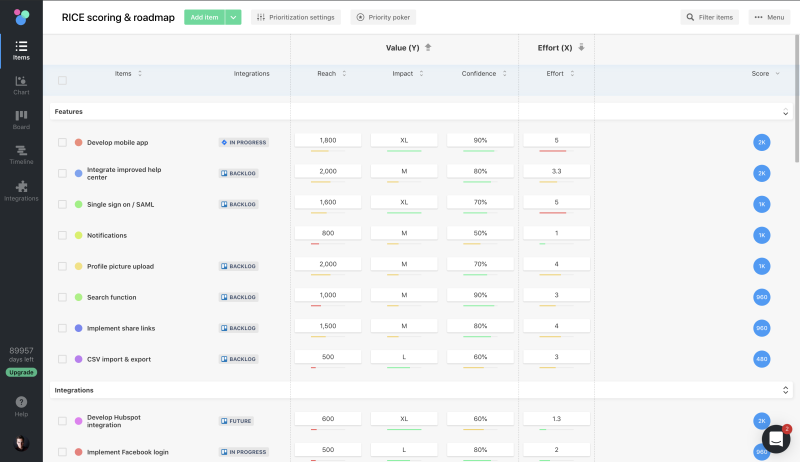Product Management Trends in 2020: Five Things to Watch for This Year

Trends come and go — especially in a fast-changing profession like product management.
But if you’re going to stay ahead of the game, it helps to have a sense of what’s coming next.
With 2019 drawing to a close, it’s time to cast a glance into the future, consider the forces shaping best practice, and make some educated guesses about the impact they’ll have on product teams in 2020 and beyond.
After looking at the data and thinking about the themes that have popped up repeatedly in industry conversations over the last year, we’ve identified five factors likely to influence and challenge us in the next 18 months:
1. Product managers feel the love: look for more appreciation of PM’s value next year
As more businesses embrace digital transformation and competition to deliver exceptional online experiences hots up, expectations of product management are rising.
Teams are increasingly being asked to do more and play a more active role in strategic conversations that affect the entire business.
That suggests we’re entering a new phase.
Back in 2016, a survey by Pragmatic Marketing showed that less than a third of a product manager’s time was being spent on strategy.

With the role increasingly being seen as a critical enabler of growth and transformation, businesses are now looking at maturity models for product management to assess how their product management function stacks up against the competition.
Boards are starting to ask if their company’s product management function takes an evidence-based approach, has a customer focus, and works in close alignment with strategic priorities.
Agile’s spread from IT to other parts of organizations is also raising product management’s profile.
And as the realization takes hold that product management are the glue binding together disparate functions like engineering, design, UX, marketing, operations, finance, and legal, product managers are evolving into mini' CEOs of product.’
Product management could well emerge as today’s training ground for tomorrow’s chief executives.
2. Greater reliance on remote teams will pose new challenges
With the rapid adoption of collaboration tools like Slack, designers and engineers don’t need to be physically in the same place to work together.
As remote working extends across sectors, product teams are increasingly composed of people located outside of the business’s head office, and very often outside the country.

That’s enabled companies to tap into a global talent pool, but while building remote product management teams is getting easier, leading one comes with challenges. Expect the following to become a preoccupation for product managers in 2020.
Overcoming distance: Regular catch-ups are a standard requirement for product management teams, but more remote members mean they can rarely meet in person. Digital conferencing is usually the first option — though conversations in a hangout can be disjointed or delayed. Screens freeze. Microphones stop working. PMs can struggle to keep their agendas on track.
Defragmenting collaboration: When you work together in an office, it’s easy to connect with teammates. Informal processes like popping by a colleague's desk to 'ask a quick question' are an invisible but essential way for teams to stay in-sync. With remote teams, that sort of valuable, ad hoc, day-to-day communication is harder to replicate.
Stopping new silos from taking hold: Remote workers by definition operate in isolation from the central HQ. It’s easy to become disconnected or feel disengaged from broader team objectives. Sustaining esprit de corps — and keeping individual members working in alignment with others — will be increasingly important as reliance on remote teams grows.
3. The dual rise of m-commerce and 5G will change the types of products we are building
Research shows mobile e-commerce is experiencing meteoric growth, with purchases on smartphones set to capture nearly half of all online retail sales next year.
The ongoing rollout of 5G in major markets around the globe will only accelerate the transition from e- to m-commerce while prompting people to conduct more and more of their personal and professional lives on their handsets.
With 5G’s faster loading times, near-zero latency, and increased connection density, the pressure to develop software that is more robust, scalable, function-rich, easy-to-use, and reliable will rise too.
That could push previously ‘exotic’ ideas like 4K streaming, 360° videos, or mobile AR/VR onto product roadmaps sooner than expected. Product managers can also expect to field even more questions about how end-users can benefit from new mobile experiences.
4. The no-code movement will make its presence felt
Drag & drop development platforms are maturing, and it’s getting easier for non-programmers to create their own apps. That growing no-code movement has the potential to pile on new pressures in 2020.
While coding is unlikely ever to become completely obsolete, the power to build software is rapidly growing more distributed and democratized. As organizations gain the ability to DIY their own applications, minimum expectations for the ease, simplicity, and value that vendor-built applications deliver can only go up.
If you believe the hype, no-code is already helping some large enterprises move with the speed and agility of start-ups. If that’s the case, competition from a new wave of apps developed on no-code platforms could quickly become a pre-occupation for product management teams.

It may seem a bit early to herald the dawn of a no-code application market. Still, with companies like Salesforce.com throwing their weight behind it, product managers need to keep an eye out for new competitive concerns.
They should also watch for opportunities to extend agile development by integrating no-code platforms with current dev tools and processes.
5. The tools product managers use will become more sophisticated
All of these developments suggest that the tools product managers use to be more productive, effective, and efficient in their jobs will need to get better.
Strategic planning, collaboration, goal setting, and road mapping are essential to product management. Improving those capabilities will lead to better decision-making in the face of growing competition and rising expectations.
For example here are a few changes you can expect from product management tools.

Expect the customization options in product management platforms to improve, with options like the ability to create bespoke prioritization formulas becoming more common.
Features and templates that enable product managers to leverage the RICE methodology (reach, impact, confidence, effort) for prioritizing ideas and features will also move to the foreground.

The option to roll multiple roadmaps into a single master roadmap. This will make it easier for product managers to consolidate plans into a single comprehensive roadmap. A must for Product Managers that are managing multiple products / teams at once.
Here at airfocus, we're working hard to help product managers deal effectively with the demands they can expect to face next year, the year after, and beyond.
Valentin Firak

Read also






Experience the new way of doing product management

Experience the new way of doing product management



